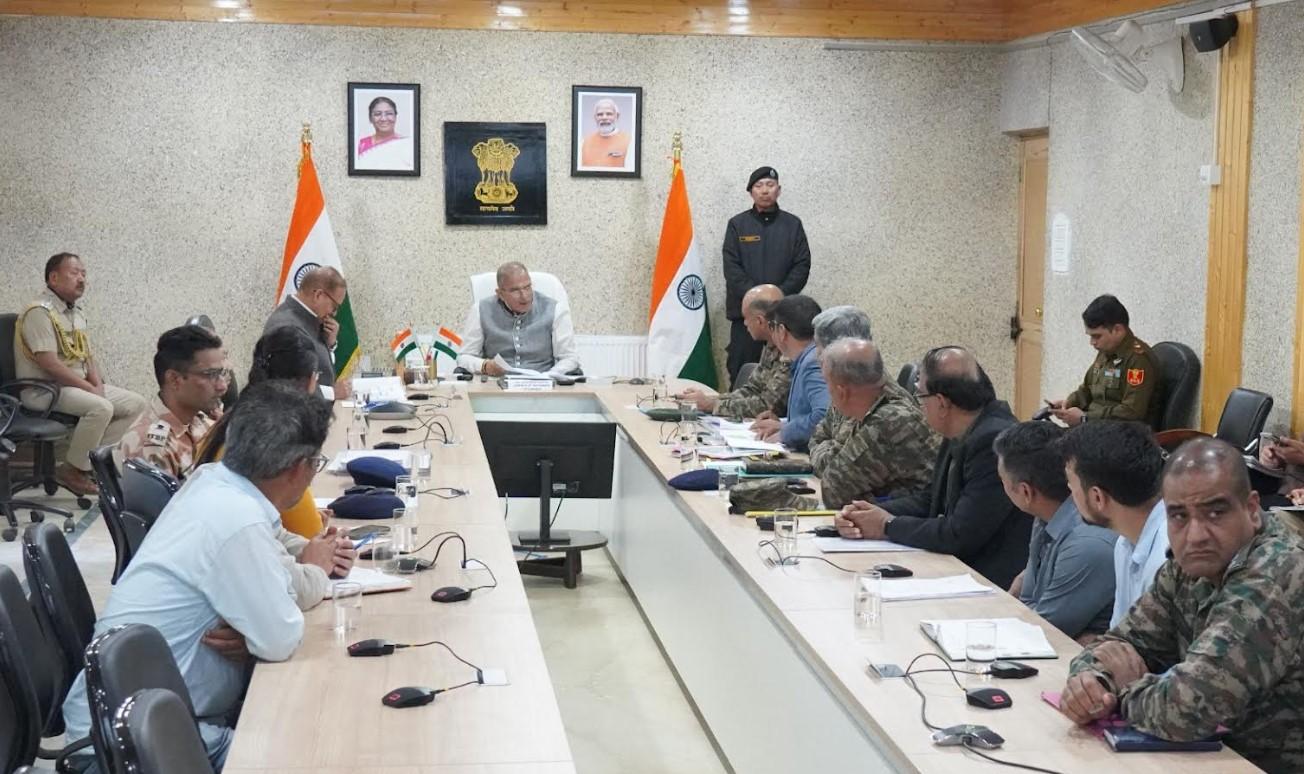Hon’ble Lieutenant Governor of Ladakh, Shri Kavinder Gupta, today emphasised that Ladakh must serve as a model for achieving a fine balance between strengthening national security and safeguarding its invaluable biodiversity and high conservation value areas. Chairing the 13th State Board for Wildlife meeting here today, he underlined the importance of adopting development strategies that both protect the nation’s strategic interests and preserve the Union Territory’s fragile ecosystem.
The Lt Governor highlighted the need for integrating environmental safeguards into the planning and execution of infrastructure projects. He recommended the realignment of roads, power lines, and other developmental works passing through ecologically sensitive zones to avoid fragmentation of habitats and ensure unhindered wildlife movement. He also directed that all wastewater and sewage be treated through STPs as per prescribed norms before discharge, particularly in or around wildlife areas, along with proper management of solid waste to prevent pollution of natural habitats.
After extensive deliberations with the members of the State Board for Wildlife, the Lt Governor approved wildlife clearances for key infrastructure projects. These included defence-related works and road connectivity projects, as well as proposals of the Power Development Department (PDD) in Karakoram and Changthang wildlife sanctuaries. He reaffirmed that the Administration is fully committed to ensuring that essential national security and developmental projects move forward while maintaining sensitivity towards the environment.
The meeting witnessed wide participation from leading experts, senior officials, and representatives of security forces, reflecting the Administration’s collaborative approach to decision-making. Among those present were renowned wildlife expert Dr. M.K. Ranjitsinh Jhala; Chairman/CEC LAHDC Leh, Adv. Tashi Gyalson; Chief Secretary, Dr. Pawan Kotwal; Executive Councillor, Tashi Namgyal Yakzee; DGP Ladakh, Dr. S.D. Singh Jamwal; APPCF Ladakh, S. Rajesh; experts from the Wildlife Institute of India; senior officials of the UT Wildlife Department; and officers of the Army and ITBP.
Concluding the meeting, the Lt Governor said that Ladakh, with its rare wildlife and unique high-altitude ecosystems, carries a dual responsibility of protecting India’s frontiers while also conserving its natural heritage. He noted that Ladakh’s balanced approach will serve as a guiding example of how national security imperatives can successfully coexist with ecological conservation.
Leave a comment
Your email address will not be published. Required fields are marked *


